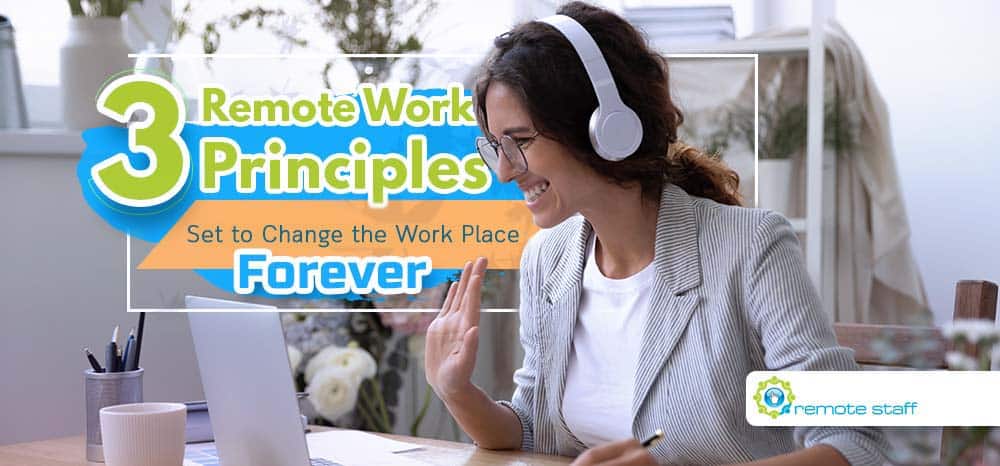I’ve been working remotely, part-time and full-time, for the past eight years. Up until recently, I’ve always had to explain what I do.
“Work from home? How does that work?” “Ah, you work from home? (Translation: That means you probably loll around in your pj’s all day looking up memes, right?)”
And 2020 happened.
With a global pandemic wreaking unprecedented havoc everywhere, the workplace as we know it underwent a huge upheaval. All these companies that had been putting off implementing WFH policies for years suddenly had to embrace them.
The silver lining in all of this, however, is that we are at the cusp of a huge paradigm shift. Remote working clearly won’t be going away anytime soon. It’s also set to challenge a lot of our established and preconceived notions surrounding work, particularly in three key areas:
1. Time flexibility.

The typical 9-5 work schedule was the norm for years. While it was great for ensuring that businesses functioned during working hours with all hands on deck, it also gave rise to other problems. Traffic congestion, increased utility costs onsite, and difficulties in establishing a good work-life balance (especially for working parents) are just a few of them.
So, as more companies implemented working from home schemes (and outsourcing tasks *wink*wink*), they also began to appreciate the benefits of flexible schedules. First, it enabled them to access talent in other time zones. Second, this opens up the talent pool to skilled workers who aren’t available during typical working hours (e.g., young parents, working students, etc).
Lastly, a flexible working schedule is more conducive to productivity. It allows night owls and early birds alike to work when they are most alert and creative, thus paving the way for the best results.
Besides, time flexibility allows for greater work-life balance, and happy workers are always effective workers.
2. Academic qualifications for hiring.

For the longest time, you had to go to college if you wanted a decent job. A degree from a top university was pretty much a guarantee for a solid paycheck and a stable career. Skipping college wasn’t an option. Not if you didn’t want your CV automatically thrown out. Hence, huge student loans in some parts of the world.
In the remote working industry, however, employers focus more on what you can actually do. Certifications might matter, but only if they pertain to your core skill, such as graphic design, copywriting, or digital marketing.
Remote work is perhaps the one area where a hefty design portfolio can have more value than an MBA from an Ivy League school. But that too could change soon.
As the world increasingly shifts over to a digital economy and to automation, the demand for traditional qualifications are diminishing. The demand for creative and technological skills, on the other hand, are through the roof.
The good news is that you don’t even need to go to college to obtain the latter, and employers are starting to take note.
3. Workplace inclusivity.

Remote work has the potential to be a great equaliser. When employers aren’t concerned about onsite availability, synchronous schedules, or college degrees (or the lack thereof), they can tap into a MASSIVE pool of talent.
This allows new mothers, working parents, remote overseas workers, and the disabled to participate in the workplace. Just imagine what their fresh insights and untapped potential can do for your company (and for the world).
Obviously, these changes won’t happen overnight, but it helps to be aware of them so you can stay ahead of the curve.
Remote Staff has been nurturing Filipino remote talent and connecting them with AU entrepreneurs for more than a decade now. So, you can bet that we’ve got all our ducks in a row when it comes to facilitating a long and fulfilling remote working relationship.
Want to learn more? Click here to give us a call or here to schedule a callback.
Serena has been working remotely and writing content for the better part of the last decade. To date, she's written for Pepper.ph and Mabuhay Magazine, among others, and has churned out more than a thousand articles on everything from The Basics of Stock Market Investing to How to Make Milk Tea-Flavored Taho at home. Hermits, aspiring hermits, and non-hermits with interesting project propositions may email her at serena.estrella10@gmail.com.
























 Zero Recruitment Fee
Zero Recruitment Fee